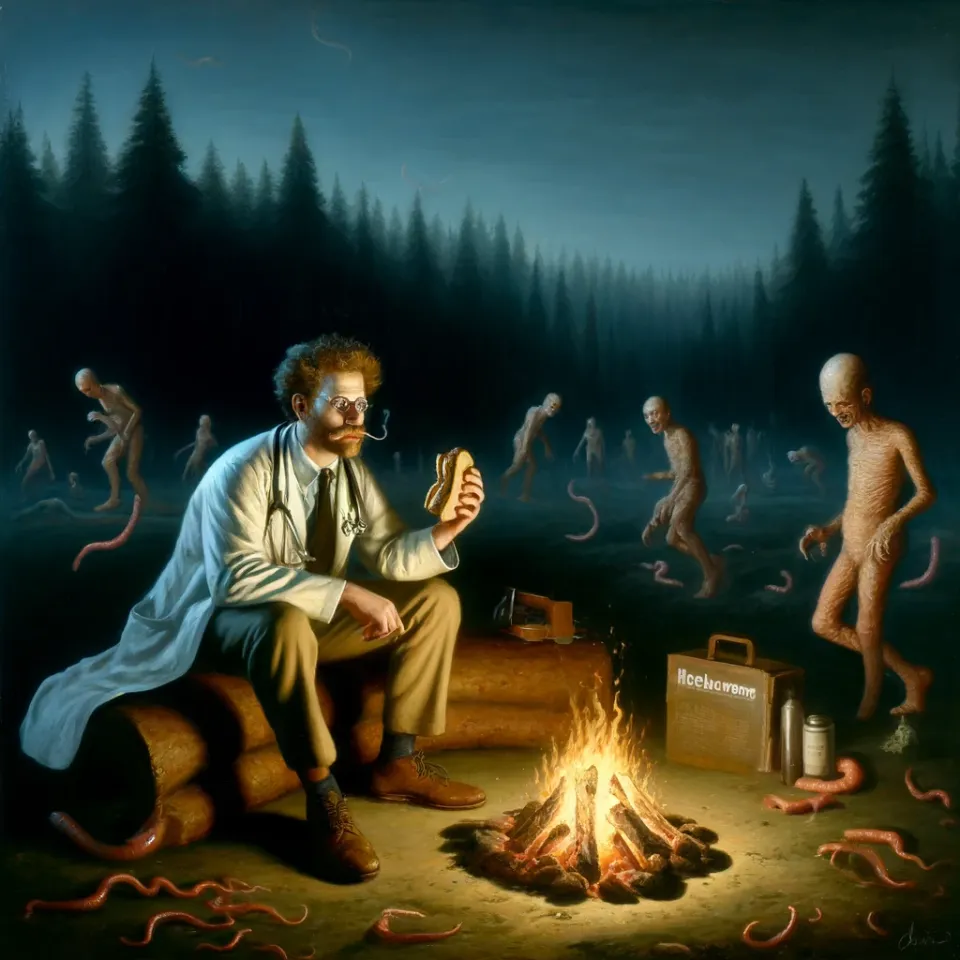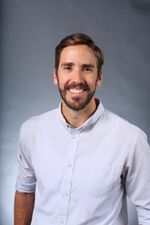Ruining the Campfire

I've seen it a lot. Dusk falls, and a group of good friends gathers around the campfire, catching up on life and enjoying the open air. The smoke wafts into the darkening sky, and one of the kids asks for a scary story. You, and every other human generation since forever, have had this experience.
What's different nowadays is that most of us are disconnected, more or less, from the natural world. These weekend adventures are where we get to pretend we're still in touch with life as it was. We're roughing it, lighting marshmallows on fire and sipping on drinks from the cooler. It's healing to be back in nature. Soothing, even.
Unless there's a veterinarian with you. They'll offer to share a few creepy things they've learned in their biomedical education, hoping to win social admiration with impressive factoids. They won't be trying to ruin anybody's evening– but inevitably, the scary campfire stories will inspire them of the most terrifying aspects of Nature herself.
They'll steer the conversation away from UFOs and chupacabras toward better documented horrors: invisible baby parasites that crawl around people's houses, surviving on their parents' excrement (itself the partially digested blood of mammalian hosts). Abdominal tumors that grow their own hair, teeth and eyeballs. A protozoan that wriggles itself into an alarming percentage of human minds, possibly contributing to schizophrenia and suicidal thoughts.
Don't encourage them. It'll only make it worse. They might move on to prions: truly terrifying, lifeless proteins that trigger a chain reaction inside the brain, forming tiny holes that eventually leave it a non-functioning, spongy mush. In one case, this inevitable process starts with mild insomnia, but progresses to hallucinations, dementia, and death within a few months. Another prion disease hides inside tainted hamburger meat. Unlike other causes of infectious disease, cooking doesn't "kill" prions. They're nearly indestructible.
If the campfire hasn't been completely cleared out by now, and the veterinarian hasn't picked up on any of the social cues from any of the remaining assembly, they may go for broke and introduce, Kúru. This has all the terrifying aspects of other prion diseases, with a couple of additional ghastly additions. First, the disease affected mostly young children and old women, causing neurodegeneration and pathologic bursts of laughter as their life slowly fades out.
Second, cannibalism is the mode of transmission. Among the Fore people in the New Guinea highlands, the body of the deceased would bless any who consumed it and free the spirit of the dead. Women and children ate the brains, as it was considered culturally inappropriate for men to do so. Corpses of family members were often buried for days, then exhumed once the corpses were colonized by insect larvae, at which point the corpse would be dismembered and served with the larvae as a side dish.
This is not the nature experience most people go camping for. Eventually, everyone else will retire to a restless night of sleep. The veterinarian will probably keep talking to the dwindling embers, describing how kúru can whittle away at the brain decades before symptoms develop. They might start to wonder if their overemphasis on the macabre may be the result an (as yet) undiagnosed spongiform myelopathy. How interesting, and ironic, would that be?
It's not their fault, they've been drilled for years in rote memorization, desensitized to eating sandwiches while studying next to anatomy cadavers, and trained to be on alert for invisible pathogens swirling around our world. They don't find an in depth discussion of various animal penises to be all that unusual. These are strange people. To them, this is the natural world. And after all, you asked for a scary story.


Comments ()